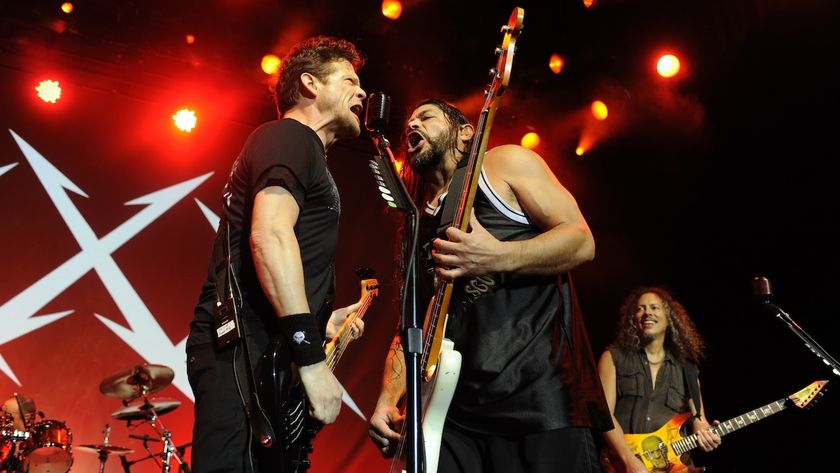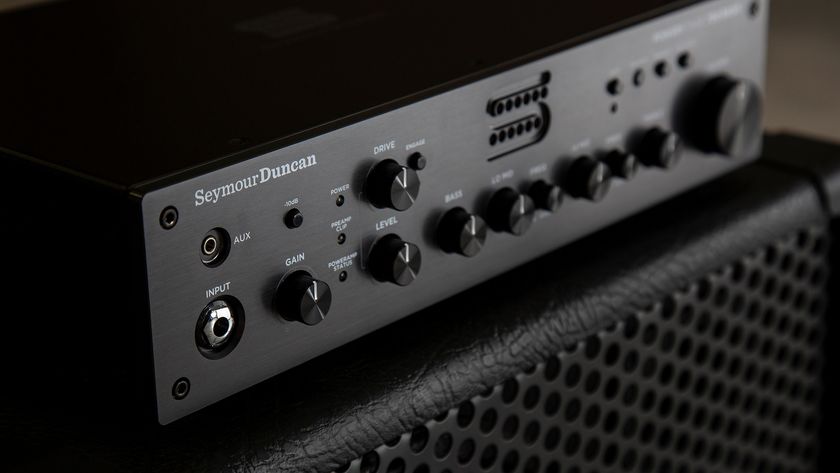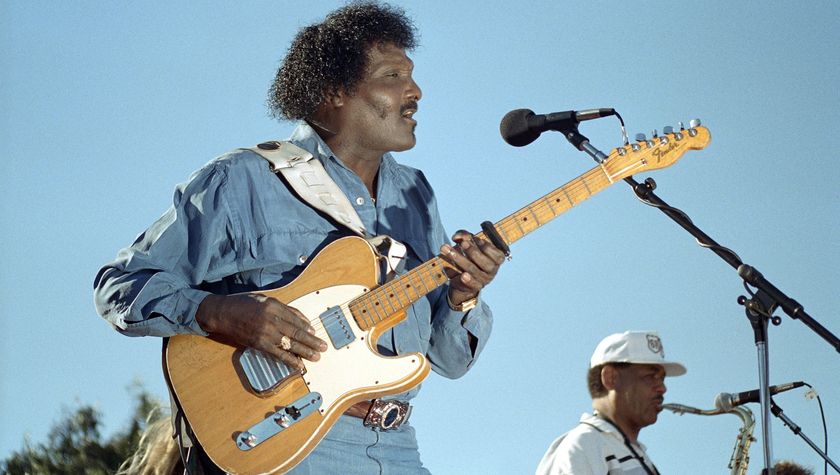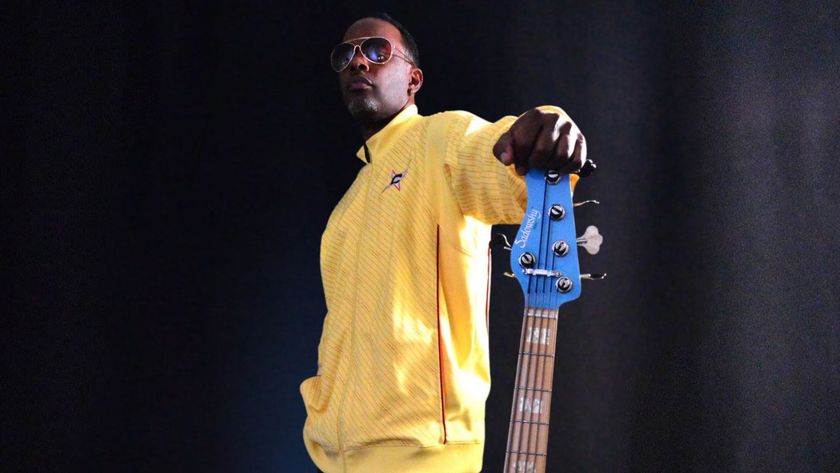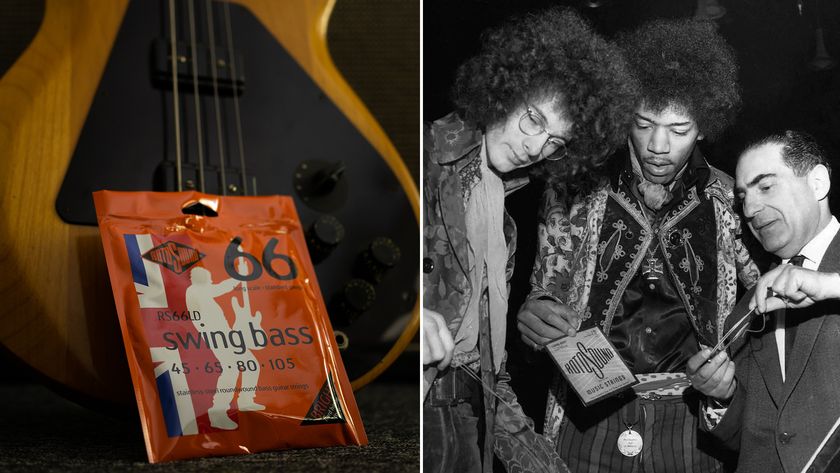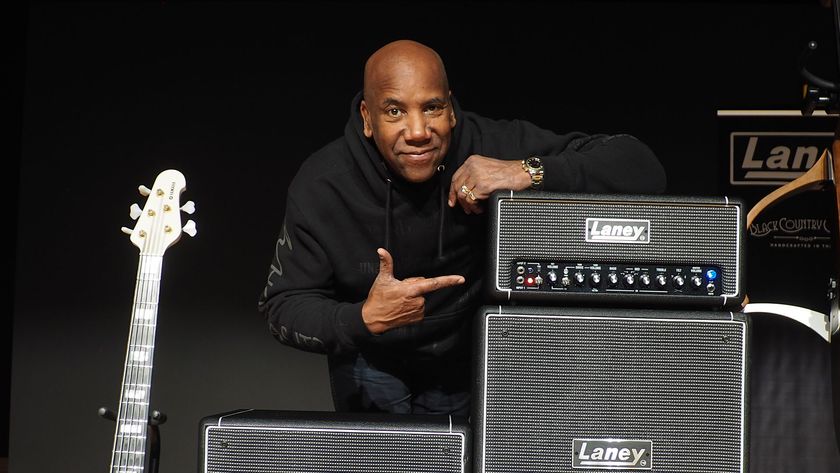Tropical Fuck Storm’s Gareth Liddiard: “I don’t know what the f*** other bands are even thinking about”
Gareth Liddiard explains why he feels the inescapable need to expose the dangers of conspiracy culture, and why the analogue fad should f*** right off
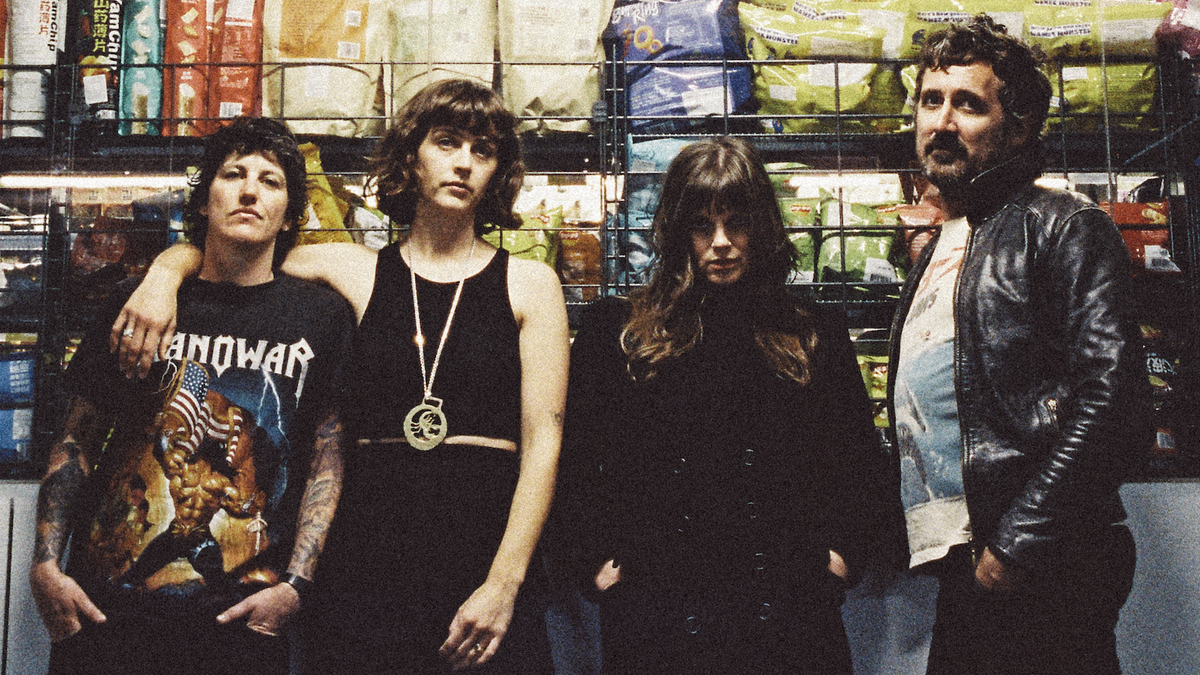
So it kind of goes without saying that none of you reading this came here for commentary on the Coronavirus pandemic. This is a guitar magazine – you came here to escape the world outside these glossy, artistically laid-out pages. And why wouldn’t you? The world is pretty f***ed right now.
But therein lies the power of music: it can be an escape from the horrors of the real world, but it can also be a tool to help one navigate those horrors. By highlighting and pondering on, critiquing and appropriating those horrors, they can become easier to digest. Such is what makes the cerebral, polarising grit of Tropical F*** Storm so endearing – they’re here to hold our hand throughout the apocalypse.
On album number three – the snarky and acerbic, yet simultaneously warm and saccharine Deep States – the band mine the throes of sociopolitical panic, environmental disarray and, yes, the pandemic we’re still wading arse-deep through, trying to make sense of it all via blunt, furious energy, jazzy experimentalism and plenty of spine-ratting six-string chaos.
Perhaps the most impressive thing about Deep States is that even exists. For the first six months of the pandemic’s eruption last year, ringleader Gareth Liddiard found himself in a notably perilous slump. He dubbed it G.A.F.F – give a f*** fatigue – the symptoms of which became the basis for one of the LP’s standout tracks. In this interview, Liddiard tells us how he managed to overcome his bout of G.A.F.F, why it’s impossible to escape the political slant of TFS’ records, and why everyone rolls their eyes at you when you swear you can tell the difference between analogue and digital tones.
So before this album came to be, you had your own case of G.A.F.F. to deal with. What pulled you out of that?
I don’t know. The first six months were kind of just a funk caused by not having any concrete plans. I think it was just necessity. Y’know, sooner or later we were going to have to make a new album, because sooner or later things are going to open back up and we’ll have to start touring again. But I can’t remember the exact thing that pulled me back into it. Things eventually came to the point where we could do it – where we could get together and make some music.
For a band like Tropical F*** Storm, which is very politically and socially keyed-in, right now really is the best time for you to put a record out. Did you find that when you started writing songs again, you had plenty of creative inspiration to mine from, given everything going on?
You’ve always gotta kind of try to seek it out. But once you start doing that, you realise there’s plenty out there. I mean, with all the QAnon stuff… It’s just weird that no-one else even mentions that shit. I just find it bizarre. Like, what the f*** is everybody doing? People go, “Oh, you’re a political band,” and it’s like, okay, to a degree that’s true, but at the same time, you’ve the Trump thing and the QAnon thing – everyone’s into conspiracy theories and everyone trolls each other on the Internet – and that shit is so in-your-face, I’m just surprised there aren’t more artists making anything more than a passing mention of it.
I don’t know what the f*** other bands are even thinking about – it’s like they’re living on a different planet. There’s a guy that runs a stall at the markets near where I live, and he had [far-right dogwhistle] Pepe The Frog drawn on his little blackboard. It’s like, “F***ing hell, dude!” That shit is everywhere, and everyone just wants to pretend it just doesn’t exist.
Get The Pick Newsletter
All the latest guitar news, interviews, lessons, reviews, deals and more, direct to your inbox!
I think a lot of people have the mentality that if they ignore something, it doesn’t exist. Ignorance is bliss.
People are probably worried about getting called out for shit themselves. I mean, anything is controversial these days, and people are so paranoid that they’re going to be called out and shut down that they’d rather just shy away from anything remotely political or controversial. If you mention Nazis in a song these days, you run the risk of having some moron misconstruing you for being an actual Nazi. People are all shit-scared of each other – it’s like 1984 or Nazi Germany where everyone is dobbing each other in.
For however avant-garde or unconventional it does sway, Deep States is probably the most refined TFS record thus far. Was there a deliberate intention to lean this album closer to your pop-centric inclinations, or did it just happen naturally?
You kind of go through phases, and phases are sometimes bigger than nine songs, or however many songs are on a standard record. I think we’ve been going through a phase that’s about 20 or 30 songs long; it’s been like an arc, I guess. And we’ve just refined that particular phase – that ark – on this third album.
I think that sort of TFS sound so far, we’ve gotten good at it. We’ve toured a lot, we’ve learned to play with each other and we all know what page we’re each on – we’re in a really comfy zone, in that sense – so now that we’ve reached this peak with the pop phase [on Deep States], I think we’ll put a full stop on that. The next record will be another completely bizarre, experimental thing, and it’ll become new again. So now we have to figure out what that thing is. So that would be why it seems a bit more refined, because we’ve grown into our shoes.
I can just imagine how mental a TFS jam sesh would be. How much of your creative process is just throwing shit at the wall and seeing what sticks?
I mean, sometimes we jam in the studio – y’know, the kind of ‘classic’ idea of a jam – but then sometimes it’s all done in the computer, where we kind of just f*** with everything and edit it, and it’s more like making a movie. You’re always trying to figure out what [a song] is going to be – and that’s as much fun as doing it live in the room as well. If you’re in the room all the time, you tend to just come up with the same old shit, more or less, because it’s the physical world – meatspace – and there’s only so much you can do there. So we do a bit of everything, really.
What’s your stance on the ‘analogue vs. digital’ argument?
[Sighs] when someone says they like tape or they like tubes, or they like transformers or whatever, they’re basically just saying they like distortion. And by that, I don’t mean a f***ing Boss Metal Zone pedal, I mean natural distortion. But the plugins nowadays – FabFilter stuff or Waves stuff – there’s a lot of really cool saturation and distortion plugins that you can just run over everything and get what you love most about tape or tubes. I think people that think they prefer analogue – people that think they know analogue, and they can spot something that’s analogue over something that’s digital – I think they’re full of shit.
I bought a new Line 6 Helix pedal, which models all of the distortion pedals I have, and it sounds exactly the f***ing same as the real ones! And they’re better, because the ones in the Line 6 pedal have more EQ options. Digital has gotten so good that it can emulate the real pedals perfectly – and why wouldn’t it be able to emulate what some little LED or transistor does? It’s not rocket science.
Analogue is shit… Well, it’s not shit, but it’s definitely not worth it. You buy a tape machine and you spend half your life maintaining it and paying for it. I’d rather spend half my life maintaining and paying for busted harddrives and computers.

Ellie Robinson is an Australian writer, editor and dog enthusiast with a keen ear for pop-rock and a keen tongue for actual Pop Rocks. Her bylines include music rag staples like NME, BLUNT, Mixdown and, of course, Australian Guitar (where she also serves as Editor-at-Large), but also less expected fare like TV Soap and Snowboarding Australia. Her go-to guitar is a Fender Player Tele, which, controversially, she only picked up after she'd joined the team at Australian Guitar. Before then, Ellie was a keyboardist – thankfully, the AG crew helped her see the light…
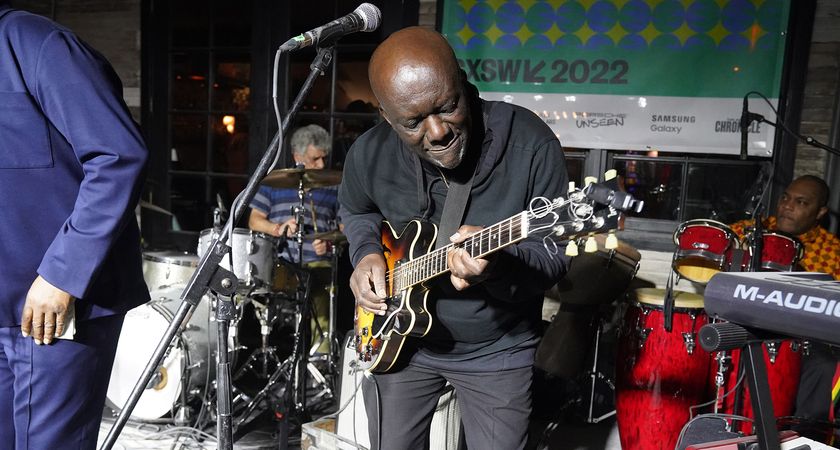
“We set out to put our thoughts and musical ideas out there, hoping they’d be appreciated. That’s proved to be true”: Sampled by Grandmaster Flash, De La Soul and the Fugees, Cymande shaped the sound of hip-hop. Now they’re back to claim their legacy
![[L-R] George Harrison, Aashish Khan and John Barham collaborate in the studio](https://cdn.mos.cms.futurecdn.net/VANJajEM56nLiJATg4P5Po-840-80.jpg)
“I got the impression that he needed to be quite forceful to get his songs onto Beatles records”: George Harrison orchestrator John Barham reflects on their shared love of Indian music and being conducted by Phil Spector
